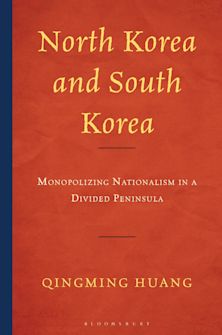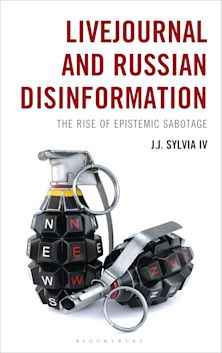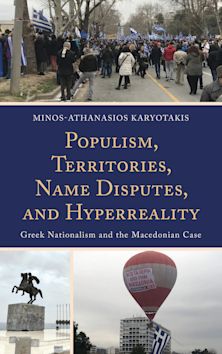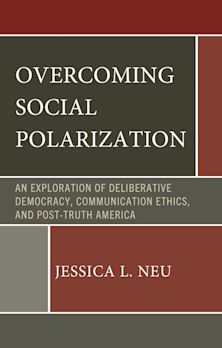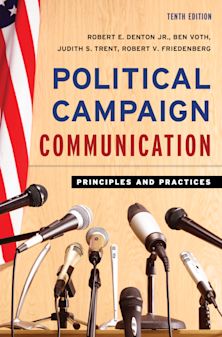The Press and Democratic Backsliding
How Journalism Has Failed the Public and How It Can Revive Democracy
The Press and Democratic Backsliding
How Journalism Has Failed the Public and How It Can Revive Democracy
This product is usually dispatched within 1 week
- Delivery and returns info
-
Free CA delivery on orders $40 or over
Description
This edited volume explores the democratic dangers posed by a political press that emphasizes electoral competition, strategy, entertainment, and what Jay Rosen calls “savviness”—praising candidates for being politically smart rather than being honest—in its coverage of a political landscape dominated by a looming authoritarian threat. Contributors document how the American and global political press have failed to fulfill their role in elections and demonstrate how authoritarians have used and will continue to use their power in setting policy before going on to suggest and develop solutions to these problems. These proposed solutions include the adoption of democracy-focused framing, solutions journalism, and solidarity journalism, all of which emphasize the needs and issues of democratic communities over candidates’ political strategy. The book’s recommendations contribute to a reorientation of journalism toward democracy and truth rather than performative detachment and forced balance. Scholars of journalism, mass media, communication, and political science will find this collection to be of particular use.
Table of Contents
Chapter 1: Seeing Both Sides: News Photographs of Politicians and the Normative Challenge of Anti-democratic Partisan Actors
Chapter 2: Cameramen and Congresswomen: How Photojournalists Framed Female Candidates in the “Year of the Woman”
Part II: The Press and Political Actors
Chapter 3: To Tweet or Not to Tweet: How Lawmakers Engage in Breaking News Online
Chapter 4: It’s a Mad, Mad, Mad World: Need for Chaos, Media Reliance, and Belief in 2020 Election Conspiracy Theories
Part III: Local
Chapter 5: Sheriffs, School Boards, and the Necessity of Pro-Democracy News in Local Election
Chapter 6: Considering News Poverty and Critical Information Needs in Appalachia: Historical and Digital Stratification in the Age of Divisive Politics
Part IV: International
Chapter 7: Cross-national Challenges in the Americas: Confronting Anti-democratic Efforts with Democracy-focused News Coverage
Chapter 8: The Relative Nexus of Election Coverage, Media Ownership, Partisanship and Threats to Democracy in Nigeria: Illuminating the Growing Crisis of Media Democracy
Chapter 9: The B Side of Activism: What Happens When Threats Against Journalists Affect the Coverage of Democratic Backsliding?
Part V: Solutions
Chapter 10: Reporting on Risk Using Constructive Journalism: The Effects of Solutions Content and Source in Stories Covering Threats to American Elections
Chapter 11: News Literacy Is Essential to Democracy
Chapter 12: Prioritizing Public Service in Political News Coverage: Solidarity Journalism for Democracy
Product details
| Published | Apr 26 2024 |
|---|---|
| Format | Hardback |
| Edition | 1st |
| Extent | 338 |
| ISBN | 9781666957495 |
| Imprint | Lexington Books |
| Illustrations | 5 BW Illustrations, 15 Tables |
| Dimensions | 235 x 160 mm |
| Series | Bloomsbury Studies in Political Communication |
| Publisher | Bloomsbury Publishing |
Reviews

ONLINE RESOURCES
Bloomsbury Collections
This book is available on Bloomsbury Collections where your library has access.












